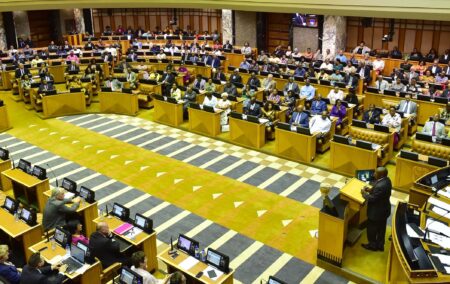Lawmaking could be hampered or even made impossible if next week’s election results in a hung parliament.
This is among the risks highlighted in a paper published by the Institute of Race Relations (IRR) yesterday, looking at scenarios which could lead to lawmaking gridlock in the National Assembly.
The paper, The Day After the Night Before: Governance Implications of a Gridlocked Parliament, examines instances from abroad where legislatures have been gridlocked and unable to function, and what that means for governance. The paper also interrogates scenarios for South Africa in which passing legislation becomes impossible.
These include a scenario in which an adversarial relationship between the National Assembly and the National Council of Provinces disrupts Parliament’s work, and another in which opposition parties boycott Parliament to prevent quorums from forming.
In a statement, author of the paper Marius Roodt says: “South Africa could be entering a period of coalition government at national level. While coalitions have increasingly been a feature of municipal government across the country, South Africa has not been governed by a coalition for decades. Although such an outcome was inevitable, given our proportional representation electoral system, coalition politics could herald a period of significant instability for the country.”
Roodt notes: “Even if the ANC wins a majority at national level in next week’s election − something that cannot be discounted − it is likely that no party is going to win a majority in Gauteng and KwaZulu-Natal. Coalition government at provincial level has also been something of a rarity, with only the Western Cape and KwaZulu-Natal ever having been governed by coalitions at various times since 1994. But, like municipal coalition governments, which have become more common, coalitions at provincial level will no longer be rare, and this paper carries lessons for our provincial legislatures, as well as the national legislature.”
Roodt adds: “Legislative gridlock could have a number of consequences for governance, which the paper examines. For example, if it becomes difficult to pass law ensuring that legislation is in place to help South Africa escape its international financial grey-listing, this will have real consequences for the country’s investment and trade relations.”
Concludes Roodt: “While coalition government could herald a period of instability, it is also the next step in South Africa’s democratic evolution. South Africans should welcome this, rather than be afraid. After all, it is during periods of uncertainty that positive reforms can emerge.”
You can read the paper here.
[Image: https://www.flickr.com/photos/governmentza/39403653365]


